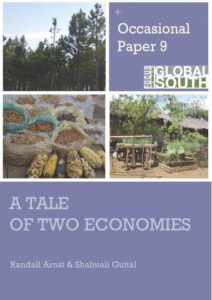27/02/2011
Under: Publications, The Commons
For generations, the peoples of the Lao Peoples’ Democratic Republic (Lao PDR) have practised locally-developed, diverse forms of agriculture and fisheries. The majority of the country’s population depends directly on small-holder agriculture and the natural environment for their livelihoods. Over the past decades, the country’s decision-makers have adopted a development strategy aimed at rapid expansion of the monetary economy through exploitation of the country’s natural wealth—land, forests, rivers, minerals and biodiversity. Policies and programmes strive to transform livelihoods from small-holder, subsistence agriculture to larger scale, market-centred and export-oriented agribusiness and industry. The Lao PDR’s sixth national development plan emphasises a shift in the structure of the rural economy towards commercial agriculture and the production of commodities and products for export. Experience shows that such rapid transformative trends affect different socio-economic populations differently. For this study, a small team talked with farmers in 14 villages about how they view current changes in their country, communities, environments, lives and livelihoods, and what they think the future might bring. This paper summarises these conversations.






